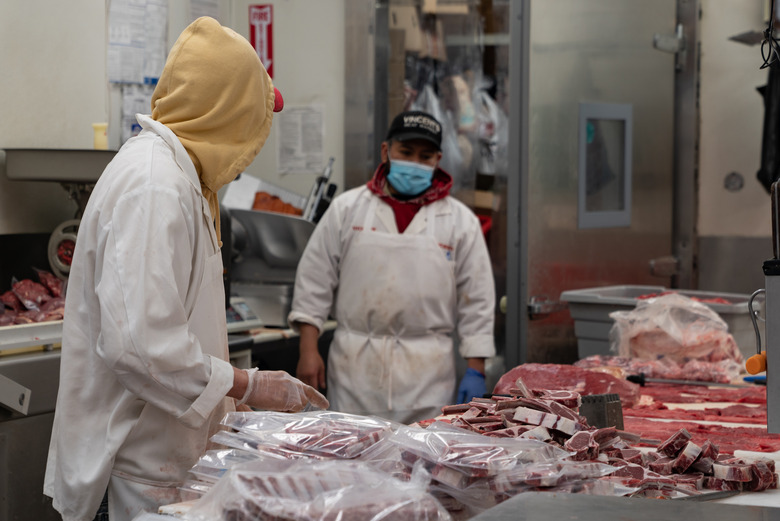CDC Guidelines During Coronavirus For Meat And Poultry Workers
On Sunday, April 26, Tyson Foods chairman John Tyson took out a full-page ad in The New York Times, Washington Post and Arkansas Democrat-Gazette to warn consumers that the "food supply chain is vulnerable."
Coronavirus is forcing some pork, beef and chicken plants to close, and millions of pounds of meat will disappear from the supply chain, according to the ad, leaving slim options for consumers at the grocery store and forcing thousands of farmers to depopulate their livestock.
Companies and Industries That Are Hiring During the Coronavirus Pandemic
Based on internal estimates from the United Food and Commercial Workers International Union, at least 5,000 meatpacking workers and 1,500 food processing workers across the industry have been directly impacted by the COVID-19 virus. So, how can staffers across different companies who are still working stay safe? Here is a look at the rules that have been set.
The Centers for Disease Control has published guidelines for the meatpacking industry, including some of the same advice recommended to the general public, like wearing face masks, washing hands and staying 6 feet apart in all directions. Single-file movement and floor markings or signs can serve as helpful reminders.
There should also be physical barriers separating workers and, if possible, workstations should be situated so that people are facing away from each other. Scheduling the same group of people to work the same shifts might also minimize the spread of coronavirus in the workplace.
Personal cooling fans should be removed from the workplace, as they could spread the virus. Arrival and departure times should be staggered to avoid gatherings in parking lots, locker rooms and areas where you clock in and out. The same goes for lunch and bathroom breaks.
Before each shift, employees should undergo a verbal screening for symptoms and have their temperature taken. An employee with a temperature of 100.4 degrees Fahrenheit or greater should not enter the workplace. These individuals should self-isolate and contact a medical provider.
Staffers are discouraged from carpooling and smoking. You're not supposed to touch your face, and cigarettes and smokeless tobacco increases the possibility of potentially contaminated fingers contacting the mouth.
And, of course, deep-cleaning common areas and items should be cleaned and disinfected regularly. This includes tools, workstations, railings, door handles, microwaves, refrigerators, vending machine touchpads, etc.
This protocol will help keep factories as safe as possible for workers, but as a consumer, should you be worried about whether coronavirus can spread through the meat these plants supply? We've got all your COVID-19 food questions, answered.
